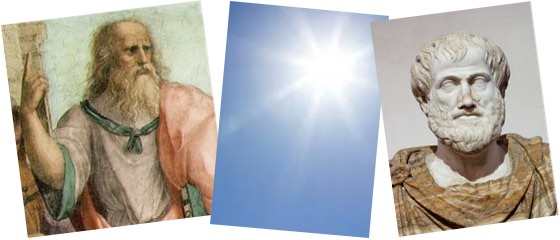 ![[Header]](../XuShared2/Line3.jpeg)

Add a Comment (Go Up to OJB's Blog Page) ConspiraciesEntry 722, on 2008-03-18 at 21:05:06 (Rating 3, Philosophy) A few weeks ago I listened to a podcast where a philosopher working at the university here, Charles Pigden, was interviewed. I have always enjoyed his thoughts on various topics because he doesn't like to follow the accepted "truths". His subject was conspiracy theories which fits in well with my skeptical interest in that area.
He started by asking what is a conspiracy? A common definition would be that its something which is crazy and untrue and something that conspiracy theorists believe in it. Putting it that simply makes it clear that we are dealing with a circular definition and the normal definition would take a more subtle form.
So what do we know about conspiracies? Does it really need to be untrue? Of course not, because there are real conspiracies. Does it have to be crazy? No, because its often perfectly sensible to believe a conspiracy. What about the involvement of conspiracy theorists. Well that is true by definition but doesn't really add anything of value to the definition.
Well we may not be able to define what a conspiracy is precisely but most people know when they see one. There's some sort of secret plan being carried out by an organised group with a deliberate action designed to hide or confuse the issue.
So let's look at some conspiracies. There was Watergate (that was a political conspiracy where the conspirators were caught and it was clearly true). There is the great UFO cover-up conspiracy (even after many decades of investigation there is still no evidence supporting this so we should conclude it is false). The Holocaust during World War II was kept secret for years and was clearly a conspiracy which was eventually revealed as true. Then there's the 9/11 conspiracy. In this example all the evidence supporting the conspiracy has been shown to have a far more likely explanation through perfectly mundane explanations, so we should conclude this is false.
So believing in a conspiracy theory isn't a bad thing. Its important that people don't hesitate to disclose the presence of a conspiracy where they think one exists. The problem occurs when the conspiracy takes on a life of its own and the conspiracy theorists can't think about it logically. They often decide the conspiracy is true and reject all contrary evidence as part of the conspiracy.
If contrary evidence is seen as being falsely created by the conspirators then instead of being seen as against the theory it is seen as supporting it. In that case supporting evidence supports the theory (obviously) but negative evidence also supports it. There is no way the conspiracy can be disproved and that's when things leave the world of common sense and we enter the strange, internally consistent but objectively illogical world of the conspiracy theorist.
So how do we tell one from the other? Crazy conspiracies tend to stay in one place and not progress. The UFO believers are saying the same things now that they did 20 years ago. They are no closer to discovering a real UFO now than they were then. Their best cases have been shown to be false but they still pretend they are true and ignore the contrary evidence. The same thing applies to the 9/11 and JFK conspiracy believers.
So we should take conspiracies seriously but not so seriously that they take on a life of their own. Like most things it becomes just a matter of applying common sense.
 There are no comments for this entry. 
You can leave comments about this entry using this form. To add a comment: enter a name and email (both optional), type the number shown above, enter a comment, then click Add.
Note that you can leave the name blank if you want to remain anonymous.
Enter your email address to receive notifications of replies and updates to this entry.
The comment should appear immediately because the authorisation system is currently inactive.
![[Comments]](../XuShared/Comment1B.jpeg) ![[Preview]](../XuShared/Comment6B.jpeg) ![[Blog]](../XuShared/Up2B.jpeg)
|

![[Comments]](../XuShared/Comment1B.jpeg)
![[Preview]](../XuShared/Comment6B.jpeg)
![[Blog]](../XuShared/Up2B.jpeg)